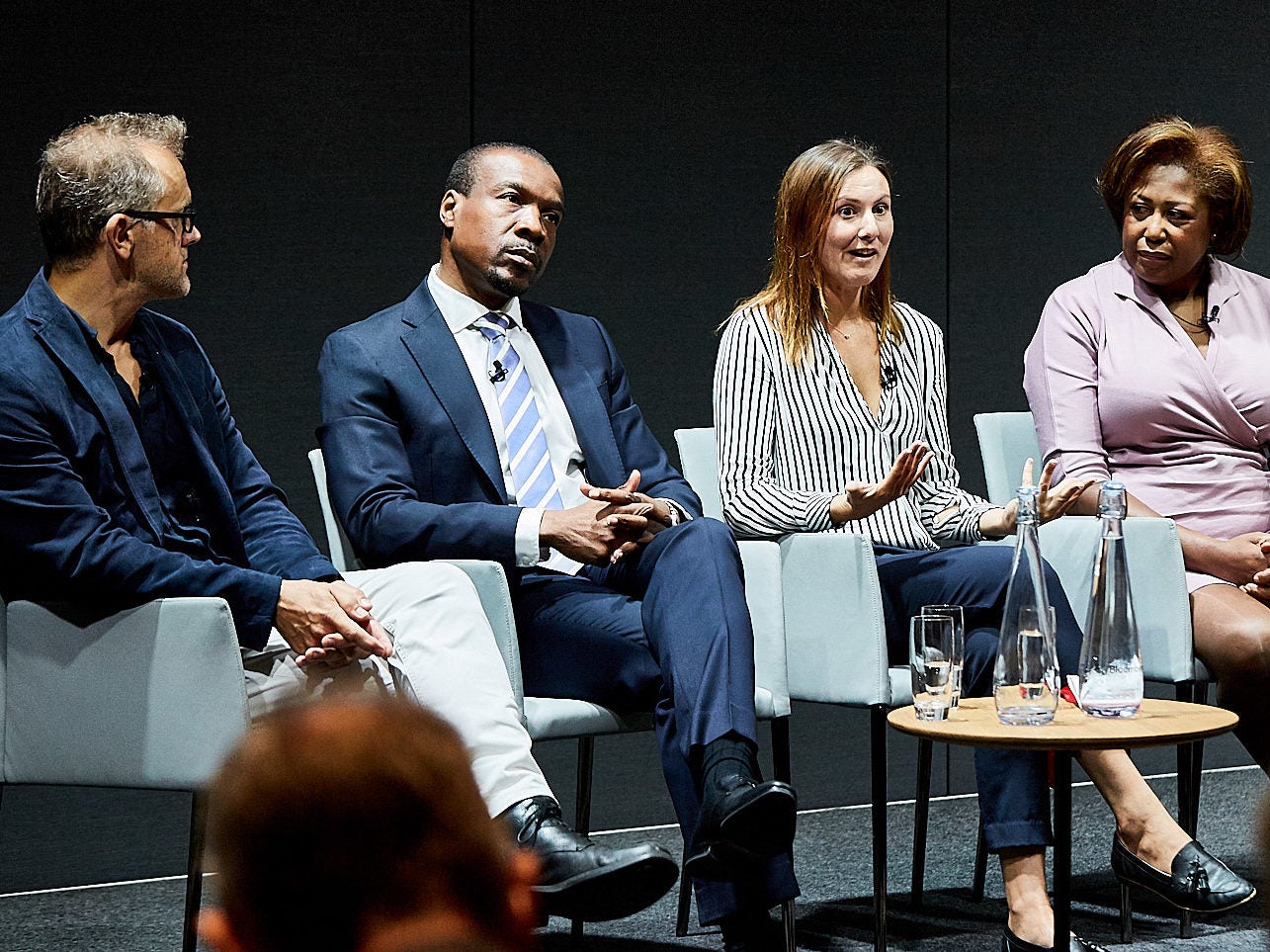
The Guardian’s head of special projects has said mental health should be better supported in newsrooms as they can be “very insecure places to work”.
Mark Rice-Oxley (pictured, far left) told the NCTJ’s Diversity in Journalism seminar yesterday that as well as race, class and gender, conversations around diversity should cover mental health.
It is especially important in newsrooms, he said, because it “goes with the territory of the macho culture of journalism”.
“We are not all strong or tough, we go through periods where we overperform and we go through periods where we are not performing and we are stressed.”
Rice-Oxley said he suffered a “shocker of a mental breakdown” around ten years ago and that he had “probably overdone it – I was probably a classic case of burnout”.
“How many people with mental health are in our newsrooms? It seems to be me almost a requisite of the job… It isn’t binary, it’s a continuum and we all sit on that continuum.
“For me it’s almost not an issue of minority, it’s like we are all in the majority and we need to rethink our business procedures, our HR procedures, and our managers.
“Journalists are terrible managers – in general they can be very bad and we need to rethink all of that so our newsrooms are places where the fit and the not-so-fit can thrive.”
Rice-Oxley suggested making mental health appraisals part of performance reviews for journalists – “not that every newsroom does brilliantly at performance reviews,” he added.
“Newsrooms can be very insecure places to work. You don’t always get feedback. I think that needs to change.
“I have worked in lots of newsrooms and I have found them to be at times very insecure places where you are not sure whether you’re succeeding or failing.”
He also backed the relatively new idea of “mental health first aiders” acting as the first port of call for support.
Rice-Oxley has been open about his depression, publishing a memoir and writing for the likes of the Guardian, Times and mental health campaign website Time to Change.
He said more senior staff in newsrooms should be open about their own struggles, adding that people have come to him to say that by sharing his experience he had made them feel less lonely.
He also praised the Guardian for the support it showed him, saying that because of the space and time he was given before he fully returned to work “I like to think I paid them back with interest”.
Sharing his advice for young journalists, Rice-Oxley recommended spending a few years elsewhere in the industry before trying to get a job in a national newsroom.
“Otherwise it’s very hard and you’re as likely to break yourself as you are to secure that plum job as health correspondent or whatever.”
He recalled his own experiences, saying: “I didn’t feel great and I buried that and it was the worst thing I could have done. Every journalist’s career doesn’t have to start in the newsroom of a national newspaper. It isn’t the best place.”
The NCTJ “culture of inclusion” panel also discussed the issue of flexibility as Hayley Pearce, reporter for the Brighton Argus, shared her experience of being a single mum in the newsroom.
She suggested a change of mindset was needed so editors “realise diversity and inclusion is important” to “reflect different perspectives”.
“That’s more important than being in the room at 5.30pm when a story breaks because I have to leave at 5.30pm to pick up my child from nursery,” Pearce (pictured, second right) said.
However she still senses resentment from others in her newsroom who feel forced to do overtime because “when it comes to regional news we are so stretched at the moment”.
On a second panel, about diversity in recruitment, ITV News presenter Charlene White spoke about how journalists need to work in supportive environments and be able to have open and honest discussions with colleagues.
She said: “There will always be someone who will listen to people. We are tired of losing good employees because people can’t be bothered to have those conversations. We are changing that, and other newsrooms need to do the same.”
Picture: NCTJ
Email pged@pressgazette.co.uk to point out mistakes, provide story tips or send in a letter for publication on our "Letters Page" blog
